This website uses cookies so that we can provide you with the best user experience possible. Cookie information is stored in your browser and performs functions such as recognising you when you return to our website and helping our team to understand which sections of the website you find most interesting and useful.
Tuesday 31 May 2016, 10:27 | By Chris Cooke
SNP MP demands legislation to tackle ticket tout bots, wonders if Scottish government could lead
Business News Live Business Top Stories

A Scottish Nationalist Party MP has written to Culture Secretary John Whittingdale and Home Secretary Theresa May to ask what action might now be taken with regard to secondary ticketing, in the wake of the publication last week of the government-commissioned review of the sector by Professor Michael Waterson.
As previously reported, Waterson didn’t propose immediate new legislation to further regulate the resale of tickets to in-demand events, but he did seek clarity on rules introduced in last year’s Consumer Rights Act, while urging voluntary initiatives by both primary and secondary ticketing firms to further protect consumers.
Alison Thewliss MP has also reportedly written to Scottish Secretary David Mundell for an update on conversations between the UK and Scottish governments on this issue. The CRA applies to the whole of the UK, though Thewliss’s letter implies that Scottish ministers could consider introducing further regulation of ticket touting north of the border if the Conservative government fails to act UK-wide.
According to the Daily Record, the MP thinks that further regulation may be necessary to restrict the use by touts of special software – or “bots” – to hoover up large numbers of tickets to in-demand music and sporting events. Thewliss: “The government needs to urgently look at introducing legislation to prohibit the use of bots that are being used to buy up lots of tickets and make a fortune for ticket touts”.
The Scottish tabloid adds that politicians in Edinburgh are awaiting a response from the UK government to Waterson’s report, while concurrently investigating whether the further regulation of online ticket touting could fall under Scotland’s devolved powers. A spokesman for the Scottish government said this weekend: “We are studying Professor Waterson’s report, particularly to see if any aspects might fall within devolved competence”.
Glasgow MP Thewliss commented on the secondary ticketing debate after the Daily Record ran a profile on one of the industrial touts named in submissions to Waterson’s review, Andrew Newman, who runs a multi-million pound touting operation from Linlithgow.
READ MORE ABOUT: Secondary Ticketing
Tuesday 31 May 2016, 10:25 | By Chris Cooke
Universal buys digital marketing agency from SFX
Business News Deals Labels & Publishers Live Business Marketing & PR

A successful sale of an SFX asset – hurrah! Universal Music has bought one of the flagging EDM firm’s marketing agencies, the digitally-focused FameHouse which has worked on web-tastic initiatives for the likes of Eminem and Tiësto.
FameHouse was one of a number of marketing and branding agencies bought by SFX during its rampant acquisition spree back in the day. As previously reported, as part of its high profile bankruptcy SFX is now trying to sell off assets that are not part of its core festival business, though a sale of download store Beatport was put on hold, while a creditor last week kicked off about plans to sell ticketing set-up Flavorus.
But the FameHouse deal is seemingly going through pretty smoothly, with Universal paying $1 million, and taking on an additional $400,000 in liabilities, to acquire the business, according to paperwork filed with the US bankruptcy courts. The mega-major says that FameHouse will continue to be run by its founder Mike Fiebach and Chief Strategy Officer Eric Hahn, with CFO Boyd Muir overseeing the business from Universal’s side.
READ MORE ABOUT: FameHouse | SFX Entertainment | Universal Music
Tuesday 31 May 2016, 10:23 | By Chris Cooke
Cherrytree allies with Warner’s ADA on distribution
Business News Deals Labels & Publishers

Cherrytree Records last week announced that – having ended its most recent alliance with Universal Music – it has now entered into a new worldwide partnership with Warner’s label services business ADA. The publishing side of the Cherrytree company, meanwhile, will continue to work with Kobalt.
Said Cherrytree boss man Martin Kierszenbaum of life beyond his time working with Universal: “We started Cherrytree Records with the same artist-centric approach and independent spirit that have guided us through our first decade of extraordinary musical and cultural adventures. I’m proud to announce that our new, fully independent infrastructure – including ADA as our exclusive label distributor and Kobalt as our publishing administrator – corresponds exactly with our philosophy and gives us the resources and agility to serve our artists with even more flexibility and bespoke support”.
From their side of the old negotiating table, ADA Worldwide President Eliah Seton said: “This partnership is a natural alignment of two companies who want to connect fans with the music they love. Artists are the core of ADA’s business, so I am THRILLED that Cherrytree Records, a label with an impressive roster of signature artists and new hot acts, is entrusting us with their distribution and label services”.
READ MORE ABOUT: ADA Worldwide | Cherrytree Records | Warner Music
Tuesday 31 May 2016, 10:18 | By Chris Cooke
Pandora share price rallies amidst yet more sale speculation
Business News Digital

Pandora’s share price rallied somewhat last week, having previously slumped in the weeks following the departure of former CEO Brian McAndrews back in March and the return of co-founder Tim Westergren to the top job. Though that rally is likely down to new speculation that the personalised radio service could be sold.
As previously reported, a significant shareholder in the digital firm, Corvex Management, recently criticised the reappointment of Westergren to the CEO role, as well as comments he had made to the effect that it was “business as usual” at Pandora Towers. “We urge the company to immediately engage an independent investment bank … to advise on a value maximisation process”, said the hedge fund. That would include considering a sale.
There has been talk of a Pandora being bought and taken back into private ownership for some time, of course, though management there prefer to chatter about plans to diversify the business into fully on-demand streaming and ticketing. Though since the Corvex statement there has been new speculation about possible bidders, with Verizon, Liberty Media and SiriusXM amongst those tipped, albeit without any real substance so far.
Like most streaming services, Pandora is still loss-making despite its massive userbase and $297 million in revenues during its most recent quarter. The company currently relies predominantly on ad sales, and many agree with management that new revenue streams are required to go into profit. Though on-demand streaming isn’t yet profitable either, and ticketing is a sector dominated by a small number of major players.
Which is why, for existing shareholders, a sale is an attractive proposition, though whether any of the mooted bidders would really see a value in acquiring the loss-making concern remains to be seen. Nevertheless, Pandora’s share price reached a three-month high in after hours trading on the back of that sale speculation this weekend, though that share price is still down on where it started the year, and less than a third of the value achieved during a February 2014 peak.
READ MORE ABOUT: Pandora
Tuesday 31 May 2016, 10:17 | By Andy Malt
Spotify opens up in-house playlists to brands
Brands & Merch Business News Digital

How is Spotify ever going to turn a profit and free itself from relying on the financial input of other companies? That’s the big question everyone was asking last week. Did you ask it? Of course you did, because everyone was asking that question last week.
The answer, by the way, is through the financial input of other companies. Though advertisers rather than investors, see. Yes, the thing you’ve all been waiting for, branded playlists, are here. Woo!
As of now, brands can throw money at any of Spotify’s 400+ in-house playlists. Perhaps surprisingly, this has never been possible before. Brands are able to have their name slapped on an existing playlist for as little as a week, or they can still work with Spotify to promote a playlist of their own if such a foolish plan appeals.
At the top level, an advertiser can, according to official blurb, ensure that “every listener tuning into your sponsored playlist will be immersed in your brand’s message, across audio, video, and display”. And doesn’t that sound like something everyone would enjoy? “We’ll work together to blow the doors off playlist usage during your sponsorship to amplify your brand messaging”, adds Spotify, apparently with a straight face.
All of this is now fully available in the US, and in beta in the UK. By the way, we can’t really offer anything like the door-blowing package Spotify can, but anyone who wants to give us money to continue updating our CMU Approved and/or weekly new music playlists is quite welcome to. Though you might have to do so secretly, so Spotify doesn’t find out.
In other Spotify news, you can now play 30 second clips of Spotify tracks right in your Twitter timeline. What fun. No word yet on whether that blows any doors off.
READ MORE ABOUT: Spotify
Tuesday 31 May 2016, 10:15 | By Chris Cooke
CMU@TGE: Jeff Thompson on Off Axis
Business Interviews Business News Education & Events Industry People Live Business The Great Escape 2016
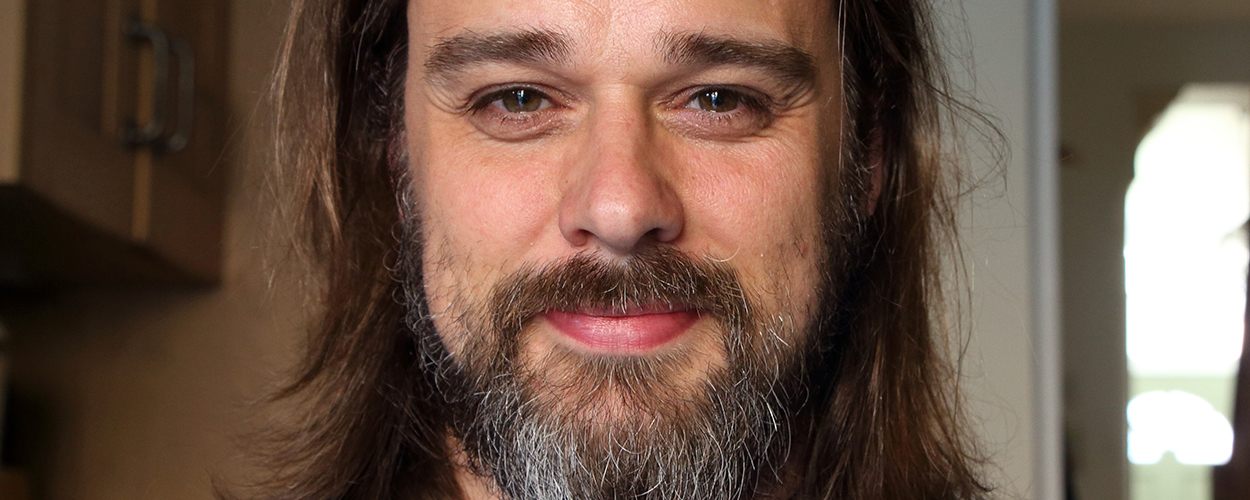
Look out for insights, advice and viewpoints dished out at this year’s CMU Insights @ The Great Escape conference here in the CMU Daily throughout June. This week, a series of interviews conducted by CMU Business Editor Chris Cooke as part of this year’s CMU:DIY programme, where the spotlight was on how new bands can go about building a fanbase through gigs and tours. Today Jeff Thompson on the Off Axis programme.
This year’s CMU:DIY x TGE programme began with the mantra that new acts need to gig to build that all important fanbase, and at the outset that means putting on your own gigs to get the ball rolling. But once the ball is rolling locally, how can you start playing further afield?
It’s that challenge that the Off Axis initiative has been set up to tackle. It’s led by Jeff Thompson, co-founder of the UnConvention events for the grassroots music community. “We’ve done loads of panels about getting started in music”, Thompson explains. “You know, getting your music online, social media, gathering emails, all that stuff, but one topic that would always come up was the challenge new bands face gigging beyond their home town”.
He goes on: “When you start a band, your first audience is made up friends, family, work colleagues and well-wishers. And that’s true of every band there’s ever been. The trick, of course, is to do a show that’s so good, some of those people will tell their friends and colleagues, ‘you should come and see my mate’s band’, and then there’s that tipping point as the band starts to get an actual fanbase”.
But what next? “Lots of new acts find that, even when they’ve started doing great home town gigs with a decent audience, they still hit a glass ceiling. So, you have 200 people coming to your gigs in Manchester, say”, he continues, picking his home city as an example. “But how do you grow beyond that? The old model was to wait for an A&R to find you, and invest some money, to get you tour support and marketing, so that your band’s name would start to spread. But for most bands that’s not really an option”. And even less so in an age when record labels are generally signing new artists later into their careers.
“I worked with some bands from the Netherlands, who were brilliant bands worthy of an audience, and I wanted to get them a gig in Manchester. But I couldn’t. And that’s despite me being pretty well connected in the Manchester music community. It’s not the fault of the local venues and promoters, because, after all, who’s going to come and see some Dutch band they’ve never heard of, however good I think they may be?”
“Things like this kept coming up”, he explains. “And even more locally than that. You’ve got all these bands who are doing well at home, but who can’t play a gig 50 miles away. I had the problem myself with a local band I was working with, who were selling 650 tickets in advance for their Manchester shows. But I couldn’t get them gigs in the next town down the road, because the local promoters just hadn’t heard of them”.
Which is where the idea for Off Axis came from, in part inspired by a similar scheme in Brazil, and by the old punk idea of gig swapping. “It’s simple, you’ve got a hundred fans in your home town, another similar band has a hundred fans in their home town, so you each invite the other to play a gig at your local venue. You don’t expect them to bring much of an audience – because they’re 100 miles away from their hometown – but you know you can sell enough tickets to have a decent show”.
Gig swapping isn’t new but, says Thompson, the problem is that the basic concept isn’t scalable. “You’re limited to the bands you personally know elsewhere in the country who are playing to a similar crowd. And gig swaps can always be unpredictable, what happens if the other band don’t get anyone along to the show, or they split up before they have chance to offer the reciprocal gig?”
Which is where Off Axis comes in. It’s a platform via which bands around the UK can exchange gigs. But instead of a straight swap, participating acts earn credits whenever they host another Off Axis band. And those credits can be used to score a support slot with any other relevant outfit in the network when they are staging a local show.
“We’ve got bands in 67 towns and cities around the UK now”, Thompson says. “Everyone joins the network on the understanding that they want to host bands from other cities, in return for opportunities to play elsewhere in the country and extend their fanbase. It means you don’t need to already know another similar band in the places where you want to play, and you have a little more reassurance about the quality of the other gig”.
Bands are vetted before being allowed into the network, principally to ensure that they are at the stage where they can actually command a decent attendance for hometown shows. In terms of the financial arrangement between gig swapping bands, Off Axis doesn’t prescribe, though it does recommend a deal, mainly because, Thompson says, “I find bands are really bad at talking abut money”.
Under the template deal, the host band covers their costs, the guest band gets their expenses, and then any monies left are split 60/40 to the headline act’s favour. “The host band might say, why are we putting in all this effort in for just 60% of the profit”, notes Thompson. “But that misses the point, the value you get from the show you score with your credits”, ie a show in another town with your expenses covered where you get to play to an appropriate crowd, all of whom are potential members of that fanbase around which each artist’s entire business will grow.
You can find out more about Off Axis at offaxisnetwork.com
READ MORE ABOUT: Jeff Thompson | Off Axis | The Great Escape
Tuesday 31 May 2016, 10:10 | By Andy Malt
Elton John hopes “to be in Russia again and often” after meeting with Vladimir Putin falls through
Artist News Gigs & Festivals
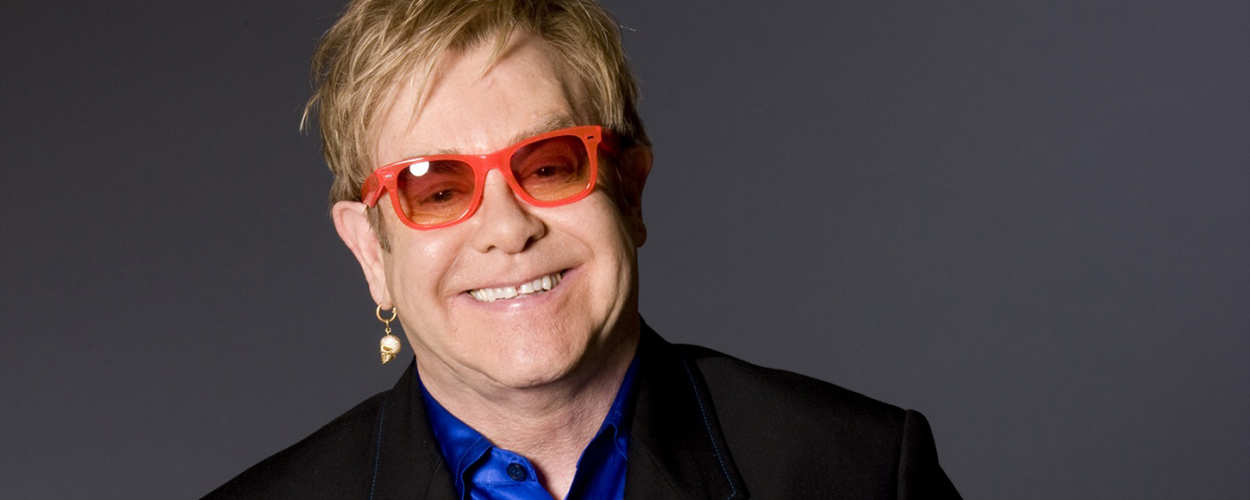
Elton John didn’t manage to sit down with Russian president Vladimir Putin while he was in the country for a performance yesterday, despite plans for such a meeting being pencilled in last September.
As you might remember, John said in an interview last year that he wanted to talk to Putin to discuss the increasingly concerning issues around LGBT rights – or a lack thereof – in Russia. Then John announced that he’d had a chat with Putin to arrange a meeting later in the year. Then it turned out that he’d actually been pranked by some Russian TV presenters. Then Putin did actually phone him and say that he’d love to have a chat in person.
Eight months later, that still hasn’t happened. The latest opportunity arose last week, as John was in Moscow to perform at the Crocus City Hall last night. But it all fell through because of a scheduling conflict. “We were in correspondence a couple of weeks ago, because there was an agreement that, if their schedules allow, this meeting could take place”, said Putin’s spokesman Dmitry Peskov. “President Putin expressed readiness for this meeting. But this time, the meeting won’t take place, unfortunately. Their schedules do not match up. But this does not mean that such a meeting won’t take place next time”.
Speaking on stage last night, John said: “As some of you may know, I hoped to meet with President Putin on this trip, and although it wasn’t possible, I’m deeply grateful to him for inviting me to discuss some serious issues in Russia, including LGBT, and HIV and AIDS. I very much hope we will find time in the future to meet and discuss”.
He also commented on the president’s wife’s new awareness campaign on HIV and AIDS, launched earlier this month, saying: “I would like to commend Mrs Svetlana Medvedeva for helping to raise national awareness about HIV and AIDS in recent weeks. This is so necessary. A dialogue of compassion it truly what is needed to end the AIDS epidemic”.
“I hope to be in Russia again and often, and I want to be helpful in any way I can in helping to create an AIDS-free future for everyone who is infected in Russia”, he continued. “I promise you that I will try my best for every single Russian with HIV and AIDS”.
READ MORE ABOUT: Elton John | Vladimir Putin
Tuesday 31 May 2016, 10:09 | By Andy Malt
Ellie Goulding responds to criticism of comments on Donald Trump
Artist News

Ellie Goulding has spoken about criticism she received regarding her recent negative comments about Donald Trump, throwing in a bit more negativity in the process by remarking: “I really don’t understand why Trump is even running for president at all”.
Some fans have reacted angrily to Trump-related tweets Goulding has been sending out since last year, one responding to a post last week, “Don’t stick your nose into politics and make me not want to go to your concert in June”, to which she replied, “Don’t come please”.
Speaking to the Daily Star, Goulding added: “I don’t speak out about everything. But when I do I speak out about what I feel is important for young people to be aware of and I feel a bit of responsibly to do so as well. Most people agree with my opinions about Donald Trump but a couple of people on Twitter did not agree”.
“A guy said he wouldn’t come to my show if I didn’t stop talking about Trump so I just told him, well maybe you shouldn’t come then”, she continued. “The way he put it made me think that I really don’t understand why Trump is even running for president at all. It is something I feel strongly about and I don’t think I should be criticised for speaking out”.
Yes, it’s quite often the people who say things like “shut up and just sing” who then shout loudest about their right to free speech. Conclusion: everyone should shut up. Including Trump, who should both shut up and go away. Oh God, do we really have to endure this until November?
READ MORE ABOUT: Donald Trump | Ellie Goulding
Tuesday 31 May 2016, 10:04 | By Andy Malt
CMU’s One Liners: Kanye West, Martin Garrix, Factory Floor, more
Artist News Business News Deals Live Business One Liners Releases

Other notable announcements and developments today…
• Kanye West last week returned to booking agency CAA for worldwide representation, after just over a year allied with rival agency UTA.
• Martin Garrix has released new single ‘Lions In The Wild’, featuring Third Party.
• Factory Floor have announced that they will release their new album, ’25 25′, on 19 Aug. This is first single ‘Dial Me In’.
• Plaid have released the video for ‘Do Matter’, from their upcoming new album ‘The Digging Remedy’.
• Hannah Trigwell has released the lyric video for new single ‘Another Beautiful Mistake’.
• Sekouia has released a new collaboration with Kill J, called ‘Lamp In The Dark’.
READ MORE ABOUT: CAA | Factory Floor | Hannah Trigwell | Kanye West | Kill J | Martin Garrix | Plaid | Sekouia | Third Party | UTA
Tuesday 31 May 2016, 10:01 | By Andy Malt
“You can enjoy it in real life”, Adele tells filming fan at gig
And Finally Artist News Gigs & Festivals

In the latest round of ‘should cameras be allowed at live performances?’, Adele enters in the red corner.
Rather than the usual annoying practice of people holding up bright phone camera screens in front of you face while you’re trying to watch the actual show, the person Adele took umbrage with had an actual camera on a tripod. A tripod for fuck’s sake!
“Can you stop filming me with a video camera because I’m really here in real life”, said the singer from the stage. “You can enjoy it in real life, rather than through your camera. Can you take your tripod down? This isn’t a DVD, this is a real show. I’d really like you to enjoy my show because there’s lots of people outside that couldn’t come in”.
Here, entirely ironically, is a fan-shot clip of that very exchange taking place:
READ MORE ABOUT: Adele
Tuesday 31 May 2016, 09:11 | By Andy Malt
Approved: The Erised
CMU Approved

Formed by drum n bass producers Detail and Hidden Element with singer-songwriter Sonya Sukorukova, The Erised released their debut EP last year through Hospital Records offshoot Med School. Despite what all that might indicate, their sound leans more on pop and rock than drum n bass, but it’s easy to see why Med School made an exception to their usual music policy in order to sign them.
Set to release their first album, ‘Room 414’, this week, the band have so far released two singles from the record. Just out, ‘Even If’ is a slow-paced, dark R&B track, that creeps and shudders. ‘Liar’, meanwhile, takes a different approach, with a more open sound, laced with drama thanks to stabs of synth and guitar.
Check out a brilliant live performance of ‘Liar’ here:
Stay up to date with all of the artists featured in the CMU Approved column in 2016 by subscribing to our Spotify playlist.
READ MORE ABOUT: The Erised
Tuesday 31 May 2016, 07:58 | By Chris Cooke
Trends: Building a more skilled music industry
CMU Trends Education & Events The Great Escape 2016

At The Great Escape in 2013, CMU Insights presented a panel discussion on copyright education. It was motivated by the fact that every time the music industry lobbies government for new anti-piracy measures it will always include a few lines about copyright education at the bottom of its proposal, though those commitments rarely come to much.
Actually, since then the content industries have collaborated with government on the questionable ‘Get It Right From A Genuine Site’ campaign, which was at least an attempt to do something, even if it confused education with public relations, and went with publicity stunts instead of learning.
But back in 2013, the conclusion of our TGE panel was that if the music industry really wanted to try and educate the world about why copyright exists, when it applies, and why it’s ultimately a good thing, then it ought to start with its own people.
Which is to say, many people working in the music industry – and even the music rights industry – know little about the principles and workings of copyright, while knowledge among artists and songwriters, whose entire careers are locked to the exploitation of intellectual property, is even worse.
And if the music industry really wants the world at large to appreciate what copyright is for, how can that be achieved when it can’t even educate the people on its own payroll, or the creators for whom copyright means money?
Not that everyone in music needs to have expert knowledge of copyright law, that’s what the lawyers are for. And artists and songwriters already have too many distractions from their core role: writing great songs, honing great performances, and making great records. But some basic knowledge of music rights would benefit everyone involved in music making, and the music industry at large.
This widespread ignorance about the basics of copyright within the music community in no small part stems from the fact that the music industry has never put a huge emphasis on formal training and education. Most people fall into the industry and then ‘learn on the job’. And it remains true that hands-on experience is perhaps the most important thing for people launching a career in the music business.
And, of course, until very recently, you couldn’t really study the music business. There may have been some business-focused sessions as part of a music or music production course at a university or college, but there were no schools specifically teaching the business of music.
This has changed a lot in recent years, with an ever increasing number of new-starters in the industry having now studied the business in some way, leading to a slightly bizarre situation where those at the top of the sector, while having more experience, might actually have less knowledge than those in entry-level roles.
But while hands-on experience is still key, and some entry-level personnel now come equipped with wider knowledge of the industry, there is still an argument that music companies should get better at providing more formal training for their employees.
We are biased here, of course, because CMU Insights is a leading provider of just that kind of training, but countless conversations with employers, clients and trainees over the years have backed up this point of view. And ahead of The Great Escape this year, we spoke more formally to over 20 people in music industry recruitment roles to get their insights on the value of continued professional development.
Because the music industry is still an evolving beast, with plenty of challenges still to meet, and opportunities to unlock. And with that in mind, more formal knowledge, as well as experience, is necessary to succeed. After all, had the record labels of 1999 not been so locked to the business of recording, pressing and marketing albums on compact disc – had they had knowledge of their artists’ wider businesses – they could have more quickly capitalised on the potential of digital.
In speaking to our 20+ recruiters in the run up to TGE this year, we set out to identify some key issues that cause the skills and knowledge gap in the music industry, and then to outline what those at entry-level should be doing to make themselves more employable, and what those a few years in should be considering to benefit both their own careers, and the artists and companies they work for.
ISSUES
There are various reasons why the skills and knowledge gap often occurs within music companies, and within the music industry at large.
Most people work in silos
This is true of most sectors of course, though there are perhaps a greater number of silos in the music industry. People may be experts in recordings, but know nothing about publishing, or live, or merch. Or even within the label, someone may understand A&R inside and out, but know little about marketing, distribution, licensing or PR.
Of course no one expects anyone to be an expert in everything (well, except maybe the poor old artist manager), but most artists write, record, release and license out songs, deliver music through retail, digital and direct, perform live at their own shows, other people’s shows, festivals and corporate gigs, sell merch, do brand deals, and try to build and sell to an engaged fanbase. So it’s really advantageous if every one of an artist’s business partners – in each of those silos – has a basic understanding of what is going on elsewhere, and crucially how everything fits together.
When people predominantly learn on the job, their skills and knowledge will skew towards the precise role they have been hired to do. And without opportunities to learn beyond that role, the silo problem will remain.
Head-nod culture
Again, you will find this in many other sectors too, but less so in those where continued professional development is a standard requirement.
A lot of people who work in music privately admit to sitting in meetings where music industry technicalities they do not understand are discussed and, rather than asking for said technicalities to be explained, either during or after the meeting, they instead nod in agreement not knowing what it is they are agreeing too.
This maybe in part because of a fear that admitting to ignorance could affect career progression, which – in some companies – may be a valid fear. And, of course, the problem of admitting to ignorance only grows as someone’s career does progress, because it becomes harder to admit to gaps in knowledge as the years go by.
Worries about losing “the dream job”
Another factor behind the head-nod culture is probably that, for many people, working in a music industry role is “the dream job”, making individuals fear all the more that admitting to ignorance could negatively impact on their careers.
Many people in the music business secretly feel that they have somehow fluked their way into that dream job – even if their skills, knowledge, passion and/or work ethic have genuinely contributed to their success – and therefore they fear anything that might deprive them of that role in the future.
Everyone is so damn busy
This is another key factor that it’s important to acknowledge: the majority of people working in music are very busy most of the time.
While the top of the music industry is flush with cash, and bigger music firms have sizeable workforces, the majority of people working in music operate on tight resources, and often there isn’t the budget to hire enough people to perform all the tasks. And often individuals pick up the slack by working longer hours.
Many music roles also involve regular and frequent unmovable deadlines – like release dates and tour schedules – which mean there is always a panic about something. And then there’s a constant feeling that, in addition to your office hour work, you should be supporting the artists you work with when they play live in the evenings.
While most of that is good fun – this is the dream job remember – it also means many people have little time spare to be reading up on music rights and digital trends, sharing knowledge with co-workers, and attending training seminars. Even though doing so is arguably as important as all the other more pressing tasks.
A lot of people work for SMEs, or themselves
Beyond a few major players, most of the music industry is made up of small to medium-sized enterprises, and an unusually high number of people are actually self-employed (especially if you include musicians themselves).
This often means people are even more tightly resourced – in terms of both time and budget – which makes investing in training and suchlike all the trickier.
Many of the bigger music companies do now have in-house training schemes of one form or another, and/or budget available when individuals request specific professional development support. Smaller businesses often have less of this in place, however, which will require employees to be more proactive in seeking such support.
Demanding a seminar isn’t very rock n roll
It is probably worth finally noting this point. Perhaps it doesn’t feel very rock n roll to be requesting a training seminar on copyright law, health and safety, or better book-keeping. Though those working in the music business are there to do the business bit – the artists having the music covered – and overcoming skills and knowledge gaps will help ensure music professionals can truly deliver for their artists.
ENTRY-LEVEL REQUIREMENTS
As mentioned above, for those at the very start of their music industry careers, there are more opportunities to gain music business knowledge than ever before, with a record number of vocational courses available at universities and colleges around the UK and beyond.
Though, perhaps ironically, at entry-level most music industry employers rank experience above knowledge, which is to say every one of the recruiters we spoke to said that some sort of formal music business qualification was not a requirement for new-starters, whereas some sort of hands-on experience probably was. Basically, if you want a job in music, DO STUFF.
This hands-on experience might take the form of an internship at a music company, though again few recruiters said this was an absolute requirement. Any extra-curricular activity that provided experience in music or business was attractive, whether that’s running a gig night, managing a friend’s band, writing a music blog, setting up a YouTube channel, and so on.
Indeed the extra-curricular activity doesn’t need to be music-based, all and any activities or part-time jobs that result in transferable skills are of interest. Though, especially at smaller music companies, projects that demonstrate a passion for music – and maybe some knowledge of one strand of the business – are particularly attractive.
Which isn’t to say that studying a music industry course isn’t of value, it’s just that a qualification of that kind on its own won’t assure a job in music. But what a good music business course does provide is: the kind of wider industry knowledge that will be of value later in an individual’s career, and in the short-term an opportunity to do the stuff that will make a CV stand out to recruiters.
For starters there are internships. In the UK, a much needed crackdown on unpaid internships in the music industry a few years back means most companies now pay their interns the minimum wage, but as a result there are fewer internships to go round. However, if work experience is undertaken as part of a degree, there is more flexibility for the employer, and as a result there are more opportunities.
But more than that, music business students have the opportunity, while at college, to pursue side projects that allow them to learn on-the-job before they actually get the job, usually with much less to lose. They will also likely have access to aspiring musicians who they can work with on grassroots projects.
The most important message from all the recruiters we surveyed was that it is young people who undertake such projects who are the most attractive candidates for entry-level music industry roles.
MID-LEVEL REQUIREMENTS
Once someone is working in the industry – so has hands-on experience by definition – up-to-date knowledge of the music industry becomes more important. And most of the recruiters we spoke to confirmed that – while obviously they look for directly relevant experience from candidates for any one specific role – knowledge beyond the silo, ie of other aspects of the industry, are very attractive indeed.
But how to get such knowledge, given the limitations described above? Some of it comes down to attitude – of not being afraid to ask questions when confusing technicalities are being discussed, though obviously applying a little common sense as to when such questions are appropriate. Finding a mentor, or mentors, slightly more senior to yourself who might offer a little time every few months to answer such questions is one method recommended by many recruitment specialists.
Another possible option is side projects. A lot of people with a full time job in one part of the music industry have a second music role on the side – managing an artist, running a club night, playing in a band etc. Of course, such side projects might make a prospective employer nervous about a candidate’s commitment to their job, though the recruiters we spoke to were either indifferent or positively inclined to such ventures.
Networking outside the silo is another approach. Everyone knows networking is important in the music industry, though it is often tempting to only network with people doing similar jobs, partly because each strand of the music industry tends to have its own trade groups and networking events. These groups and events are important, but trying to build relationships in other strands of the industry is hugely valuable, and away from your own specialism, you may feel more confident asking those who you network with questions about the very basics of the business.
Keeping up to date with the latest trends and developments is another way of expanding knowledge, though there again there is a tendency to focus on the trends and developments within one strand of the industry, rather than across the business. That said, there is no shortage of music industry news services, many offering at least some of their content for free (so, CMU obviously, but other news providers are available! – and it’s always good to take in a variety of opinions).
Though, while it’s good to be up to date with the latest industry news, the key is actually understanding what’s going on. The industry’s many panel debates – at conferences and elsewhere – can help with this, though sometimes there can be more opinion than explanation, and more debate than learning.
Which brings us back to finding opportunities to ask people who have the knowledge you need the right questions, to secure the answers that will help you understand. Which – plug alert – brings us to the more formal training courses offering by CMU Insights, our competitors, and some of the industry trade bodies.
Which is to say, more formal courses with the opportunity to ask lots of questions, preferably in an environment where such questioning doesn’t feel inappropriate or counter-productive.
While some small companies won’t always have the budget for such things, medium-sized to big music firms usually can find the money. Many actually set funds aside for more formal training courses, even if they don’t always promote that fact so well to their staff.
A final question we asked our recruiters was what specific music industry topics they sought knowledge of. The vast majority but three themes top: music rights, digital music trends and social media trends.
Those in the live sector also, unsurprisingly, ranked event production and health and safety best practice highly, though interestingly those on the music rights side rarely cited live event knowledge as important, while those on the live side nearly always put music rights high up the list. Presumably because, while those in the live industry don’t usually own music copyrights, they are customers of said rights.
Though that also brings us back to where we started. If the music industry wants the world at large to better understand music rights, it should start with its own people. Or perhaps its people should take the initiative themselves. Because a better educated and more informed music industry is better placed to seize on new opportunities as they arise, and in doing, better serve the artists they sign and the great music those artists make.
READ MORE ABOUT: CMU Insights | training
Monday 30 May 2016, 09:00 | By Chris Cooke
CMU Digest 30.05.16: Secondary ticketing, Spotify, three-strikes, web-blocks, The Pirate Bay
CMU Digest

The key stories from the last seven days in the music business…
The UK government published Professor Michael Waterson’s review of the secondary ticketing market. It called for clarity over the regulations covering the resale of tickets that were included in last year’s Consumer Rights Act, and encouraged both primary and secondary ticketing firms to introduce new measures to protect consumers. No new legislation was proposed at this time, though new ticket touting laws could be added in the future if voluntary measures fail to deliver. [READ MORE]
Spotify filed its financials for 2015, showing a bumper year in terms of revenue growth, with both ad income and subscription monies up, though the latter remain far bigger. Losses were also up, to 173 million euros, leading to much speculation as to just how much scale Spotify needs to become profitable, and whether there are enough potential premium subscribers in the world to help make that a reality. [READ MORE]
The two big mechanical royalty lawsuits against Spotify in the US were combined. Musicians David Lowery and Melissa Ferrick are both suing over the streaming service’s failure to pay mechanical royalties on all the songs it streams. They both hope to get class action status for their litigation, though Spotify hopes to sign up as many other songwriters as possible to the settlement it agreed with the National Music Publishers Association. [READ MORE]
It emerged that moves to introduce a three-strikes anti-piracy system in Australia were on hold, with the local entertainment industry joining internet companies in asking the country’s government – which has been pressuring the latter over three-strikes – to take the programme off the agenda for now. Australian music and media companies are currently prioritising web-blocking in their ongoing battle against online piracy. [READ MORE]
Draft legislation in Russia proposed that rights owners be able to seek injunctions forcing search engines to stop listing and linking to copyright infringing websites, and any proxies designed to circumvent web-blocks against piracy platforms. Ministers in the country are looking at ways to beef up web-block laws, the big problem with web-blocking being how easy it is for users to circumvent blockades with a simple Google search. [READ MORE]
The Pirate Bay made thepiratebay.org its primary web address once again, fearing it might lose its Swedish domain because of recent legal action in the country. The Bay originally switched to the Swedish domain fearing it would lose the .org address, and has since used and lost an assortment of other domains around the world, before returning to .se and now .org again. [READ MORE]
The big deals from the last seven days in the music business…
• Unofficial remix distributor Dubset confirmed a deal with Spotify [INFO]
• eBay’s StubHub bought secondary ticketing rival Ticketbis [INFO]
• Pan-European licensing hub ICE announced its first deal, with Google Play [INFO]
• BMG Australia confirmed publishing deals with The Living End and Wolfmother [INFO]
• Cooking Vinyl confirmed new deals with former Morcheeba members Skye | Ross, plus Area 11, Deap Vally, The King Blues and Amanda Palmer [INFO]
READ MORE ABOUT: Secondary Ticketing | Spotify | The Pirate Bay | Three-Strikes | web-blocking
Friday 27 May 2016, 11:21 | By Chris Cooke
UK government publishes its secondary ticketing review
Business News Live Business Top Stories

The UK government’s latest review of the secondary ticketing market, instigated by last year’s Consumer Rights Act, was published yesterday and it makes a number of demands of the live and ticketing sectors.
The rise of online ticket touting has been controversial for years, of course, and there have been calls from within the music industry, and from consumer rights groups, for regulation of the secondary ticketing market at various points in the last decade or so.
Then MPs Sharon Hodgson and Mike Weatherley managed to sneak some light regulation into last year’s Consumer Rights Act, which mainly forces ticket resellers to provide some key information about the tickets they are selling, such as face value, seat numbers and any restrictions.
In this new review, Professor Michael Waterson was asked to assess how those new rules have been implemented, and whether there was a case for greater regulation. His report also reviews the arguments on both sides of the secondary ticketing debate.
So that’s the argument that a small number of industrial touts routinely hoover up tickets for in-demand shows and re-sell them at massive mark-ups even though doing so is against the terms and conditions of the tickets they are selling.
Which is bad for fans, especially where artists try to keep their prices low for the benefit of core fanbase. And it’s bad for the industry, because consumers have finite funds, and if they have to spend more to go to premiere league shows, they may have no money left to spend on more grass roots events.
And then the argument that if someone buys a ticket, they should be allowed to re-sell it on the open market; that secondary sites provide an alternative for consumers who can’t be bothered doing the eternal refresh thing as tickets first go on sale; and that having the reselling happening on legit secondary ticketing sites makes consumers less like to be the victims of fraud.
In his recommendations, Waterson does not go as far as some secondary ticketing critics would like, though he does propose a number of reforms. First of all, with regard to the Consumer Rights Act, he reaffirms what a number of commentators have said in recent months (and what Which? said earlier this week), which is that there is need for clarity.
In particular over whether or not the secondary ticketing sites – as well as the sellers – are obliged to ensure that the minimum required information about the ticket being sold is provided. Waterson is of the opinion that that obligation does extend to the resale sites as well as the sellers, even though the likes of Viagogo, Seatwave and StubHub are just intermediaries in the sale process.
Concluding that current regulations should be clarified before new legislation is considered, Waterson also seeks clarity on the penalties for violating the CRA rules, and also urges that someone – probably National Trading Standards – takes on responsibility for monitoring secondary ticketing sites, and enforcing the rules. Police should focus on actual ticket fraud, he reckoned, but someone needed to be ensuring the resale regulations were being adhered to as well.
Waterson also urges the secondary sites to distinguish between individuals and traders on their platforms, which is to say those people who resell the occasional ticket as opposed to those who tout on an industrial scale. The obligations of those identified as traders under consumer rights law will be higher, but it is currently hard to work out who they are. If the sites fail in this regard, the professor did say it might be worth considering a new law requiring those who resell more than a certain number of tickets per month to be licensed.
The report also talks about the ‘bots’ used by touts to hoover up so many tickets from primary sellers. There has been plenty of talk before about trying to ban these technologies – or have primary ticketing platforms do more to stop them from accessing tickets – and Waterson again calls on the primary sellers to do more in this regard. The bots are usually the one area where the secondary sites do agree with the anti-tout brigade, and in the past lobbyists for the resale platforms have tried to persuade law-makers to focus primarily on this point.
Interestingly, Waterson also has plenty of comments about the primary ticketing sector, and improvements that could be made by promoters and their ticketing partners which, in turn, could protect consumers. The professor concedes that discussing the primary ticketing market was not really part of his brief, but he reckons that it’s impossible to address issues around touting without reviewing the way the live industry sells its tickets to begin with.
There has been a mixed reception to Waterson’s report from the industry, with many welcoming his core findings, especially around needing more clarity regarding the CRA, and demanding action to identify the industrial touts and crack down on the bots. Though some are disappointed the report doesn’t call for more legislation against touting in the short term, while some of those on the secondary ticketing side reckon too little time was given to considering issues they have raised.
What remains to be seen is how the government responds to the report, and whether ministers show a will to legislate in the future if the industry initiatives proposed by Waterson are not adopted; the threat of government intervention almost certainly being needed to motivate the secondary ticketing platforms to participate.
We discuss the report further – and wonder whether the current momentum on this topic in the UK can be maintained and expanded – in the latest edition of the CMU Podcast. Listen here.
READ MORE ABOUT: Secondary Ticketing
Friday 27 May 2016, 11:20 | By Chris Cooke
UK government’s secondary ticketing review: Everyone comments
Business News Live Business Top Stories

A large consortium of managers and agents led the industry response to the Waterson Report on secondary ticketing yesterday. Management firms like ATC, Everybody’s, New Community, Courtyard, Red Light, Ignition and First Access joined agencies such as 13 Artists, CAA, Coda, X-Ray and UTA in signing a lengthy statement on the report. They said…
“Professor Waterson exposes a dysfunctional and under-regulated ticketing market. His review calls on government to enforce the law, and for secondary ticketing sites to apply the law and show responsibility. Fans must have clarity and fairness.
Live music is one of the UK’s cultural ‘crown jewels’. According to government data, last year one in three British adults attended a gig, festival or live performance. Fans are the lifeblood of our business. As revealed by today’s long awaited report from Professor Michael Waterson, UK audiences are confused by the ticket-buying process.
In the worst instances, they are being ripped off and sold short by industrial-scale online ticket touting. More than 40,000 fans have already signed a petition demanding that Parliament enforce the Consumer Rights Act amendment brought in last year, providing tougher sanctions for resale websites that break the law. They also demand that ticket resellers are forced to reveal their identities.
Professor Waterson has clearly recognised these long-term failings, and makes nine pragmatic recommendations that, if implemented, will help reform the market. We believe that fans should be given every opportunity to buy and exchange tickets at the price they were intended – not see them used as collateral to boost the profits of scalpers.
The music business has a significant role to play in driving change, and we are committed to work with partners to promote pro-consumer practices and technologies. However, we also reiterate Professor Waterson’s call for government to act and for secondary ticketing services to follow the law.
Above all, we need a Consumer Rights Act that is fit for purpose, and to have the law on ticket resales enforced by Trading Standards. UK audiences deserve clarity and fairness, not a dysfunctional and under-regulated secondary ticketing market that causes untold harm to our world-beating creative and cultural sector”.
Elsewhere, Sharon Hodgson MP, who has long campaigned on this issue, and played a key part in getting secondary ticketing into last year’s Consumer Rights Act, commented: “It is welcome that we have seen some solid recommendations come out of the Waterson review today, which clearly is calling for fans to be put first within the market, and not be an afterthought. This is a step in the right direction in our cross-party campaign”.
“For too long, fans have lacked consumer protections which would reduce the underhand actions of profiteering and fraudulence in the secondary market which sees fans ripped off, that is why it is welcome that Professor Waterson has called for the enforcement of the Consumer Rights Act – which we know has been continuously flouted since it was enacted last year – and for the onus to be on the secondary sites to ensure sellers comply with the transparency measures, instead of washing their hands of this responsibility”.
“Now that Professor Waterson has presented his findings to the government and Parliament, it is time for the Business Secretary and Culture Secretary to ensure these actions are taken forward, and our group of cross-party Parliamentarians will be pushing the government to make good on these recommendations in the coming months and years”.
Some of the ticketing sector also responded…
Jonathan Brown, Chief Executive of STAR, which represents primary ticketing agents in the UK, said: “The UK has a live entertainment sector which is the envy of the world. STAR welcomes and supports these efforts to safeguard the future of this hugely important industry”.
Dave Newton, CEO of WeGotTickets said quite a bit more, remarking: “This report highlights the blatant disregard that prominent touting websites have had for legislation in this country, and while I welcome the report’s assertion and a number of its recommendations. [Though] secondary ticketing is not the only practice ripping of consumers and a call for transparency in both the primary and secondary markets is a welcome measure”.
“There have been too many under-the-counter deals going on in the primary market for years with promoters ripping off customers by inflating the ticket companies’ booking fees to procure themselves a kickback. This practice has remained hidden from the customer and has been actively encouraged by a number of primary ticketing companies happy to take the reputation hit for the ‘rip off booking fees’ – a customer should know what they’re paying for; it’s as simple as that”.
Richard Davies, founder of Twickets, which facilitates the reselling of tickets without the massive mark-ups, and who led on the recent parliamentary petition on this issue, said: “We’re delighted to see that Professor Waterson’s report addresses our recent parliamentary petition – already signed by nearly 42,000 people – calling for greater protection against touts in the UK. It is now vital that the government responds to ensure compliance with the Consumer Rights Act and that all relevant legislation is enforced. It must also be prepared to step in once more if self-governance measures fail”.
“Ideally, we would like to have seen the report go further to protect fans. It acknowledges that profiteering prevents consumers securing a ticket, yet calls for evidence of manipulation before recommending a price-cap. The report further blames event organisers for creating the conditions for the secondary one, but doesn’t consider that they are seeking to make music, arts and sports events affordable. In our view the only way fans can be properly protected is through a blanket ban on resale for profit – as has been implemented in other markets around the world, and was successfully achieved for London 2012”.
Meanwhile, over in the live sector itself, the boss of promoter Kilimanjaro expressed disappointment that no new legislation is being proposed, in the short term at least. Stuart Galbraith told IQ of Waterson’s work: “I’m very pleased to see that he’s highlighted that the CRA is being blatantly flouted, and that secondary ticketers are breaking the law with impunity, but the overall conclusion of the report is that the industry needs to self-regulate, which is what we’ve been told for over a decade, and for over a decade we’ve seen customers being ripped off”.
And as for the secondary ticketing sector, StubHub was first to the quoting table, saying: “We welcome Professor Waterson’s recognition of the benefits for consumers from the secondary market and his decision to reject further legislation at this stage, including price caps and any general resale bans or bans for ‘crown jewel’ events. We also welcome the suggested action on bots and the other measures which are directed towards the primary market”.
“But we are concerned that there are still insufficient legal safeguards to stop event organisers using row and seat number details to cancel without compensation tickets offered for resale. Transparency should not come at the expense of people’s right to resell their tickets”.
READ MORE ABOUT: Secondary Ticketing
Friday 27 May 2016, 11:17 | By Andy Malt
Troy Ave arrested over shooting at TI show
Artist News Legal

Rapper Troy Ave, real name Roland Collins, has been arrested, suspected of carrying out the shooting backstage at a TI gig earlier this week, which left one dead and three injured. One of those injured was Collins himself, who reportedly shot himself in the leg by accident.
CCTV footage from the Irving Plaza venue, where the shooting took place on Wednesday night, appears to show Collins, who was due to perform at the show, enter a backstage bar and open fire. The man killed in the incident, Ronald McPhatter, is thought to have been working as a bodyguard for Collins, and may have been shot unintentionally.
According to New York Daily News, Collins had been involved in a feud with rapper Maino, who had just left the stage when the shooting took place.
Collins has been charged with attempted murder and illegal weapons possession, with a murder charge expected to be added to that list.
In a statement last night, TI said: “My heart is heavy today. Our music is intended to save lives, like it has mine and others. My heartfelt condolences to the family that suffered the loss and my prayers are with all those injured”.
READ MORE ABOUT: TI | Troy Ave
Friday 27 May 2016, 11:14 | By Andy Malt
White Hinterland sues Justin Bieber
Artist News Business News Legal

Singer-songwriter Casey Dienel, who performs as White Hinterland, has sued Justin Bieber and Skrillex, accusing them of copying vocals from her track ‘Ring The Bell’ for their single ‘Sorry’ without permission.
Dienel’s lawsuit says that Bieber’s song takes the “unique characteristics of the female vocal riff” in hers, as well as having other similar musical characteristics. She says she tried to resolve the matter with the pop star’s representatives last December, but has been ignored.
Adding that she does “not take the act of suing lightly”, she explains: “Throughout my career, I have worked very hard to preserve my independence and creative control, thus it came as a shock to hear my work used and exploited without permission”.
“Like most artists that sample music, Bieber could have licensed my song for use in ‘Sorry'”, she continues. “But he chose not to contact me. After the release of ‘Sorry’, my lawyers sent Bieber a letter regarding the infringement, but Bieber’s team again chose to ignore me”.
“I offered Bieber’s team an opportunity to have a private dialogue about the infringement, but they refused to even acknowledge my claim, despite the obviousness of the sample. Justin Bieber is the world’s biggest artist, and I’m sure that he and his team will launch a full attack against me. But, in the end, I was left with no other option. I believe I have an obligation to stand up for my music and art”.
Listen to ‘Ring The Bell’ here:
And ‘Sorry’ here:
READ MORE ABOUT: Justin Bieber | Skrillex | White Hinterland
Friday 27 May 2016, 11:11 | By Chris Cooke
Paul Gambaccini replaces Tony Blackburn on Pick Of The Pops
Business News Media
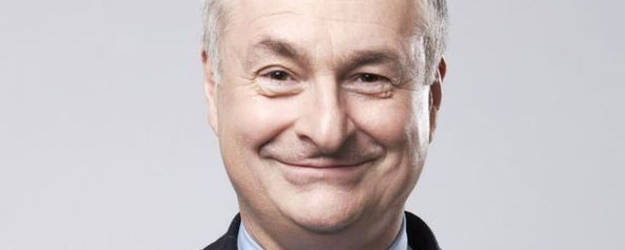
Paul Gambaccini is to take over Radio 2’s ‘Pick Of The Pops’ show, it was announced earlier this week, he replacing Tony Blackburn.
Blackburn, of course, was fired by the BBC back in February for basically having a slightly different recollection of a conversation he had in the early 1970s than that recorded in the Corporation’s official files. Which, of course, is a big fat no-no at the BBC. That’s why I have every conversation I ever had with the BBC in the early 1970s fully documented. I mean, I wasn’t alive then, and have never worked for the BBC, but you can’t be too careful. I wouldn’t want to be sacked from ‘Pick Of The Pops’.
“I am honoured to be asked to present one of Britain’s iconic radio programmes”, said Gambo. “I will strive to meet the standards of my illustrious predecessors including Alan Freeman and Tony Blackburn”, he added, assuring a name-check for the show’s axed former frontman, though totally shunning the programme’s previous host Dale Winton.
Meanwhile, over on the tweets, Blackburn himself noted: “Well, you now know Paul Gambaccini is to replace me on ‘Pick Of The Pops’. Obviously I’m sad to have lost a show I loved but I wish Paul well”.
READ MORE ABOUT: BBC | BBC Radio 2 | Paul Gambaccini | Tony Blackburn
Friday 27 May 2016, 11:08 | By Chris Cooke
CMU Insights @ The Great Escape 2016: The Big Recap
Business News Education & Events
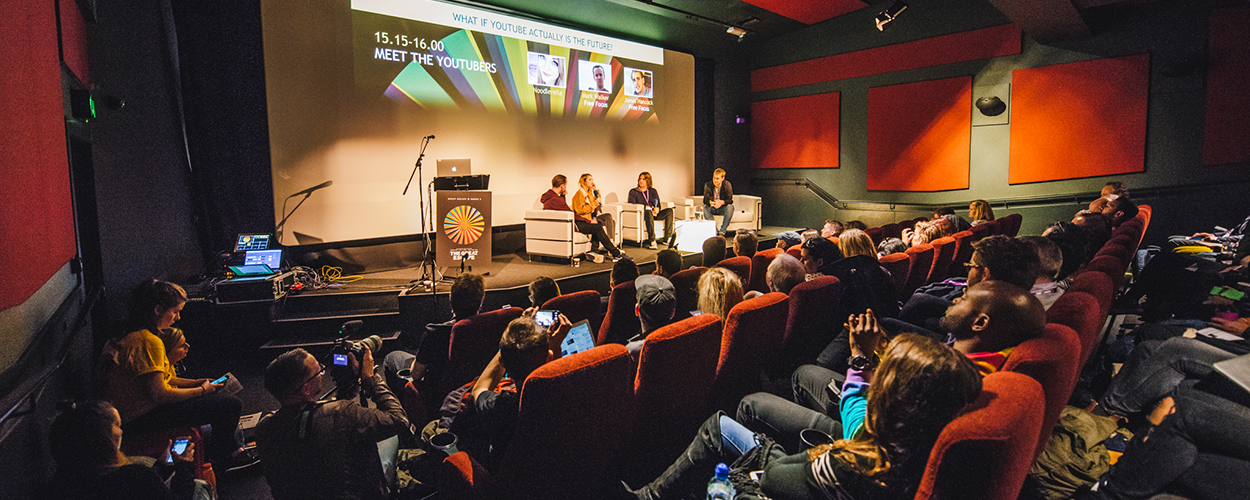
So, a week has now pretty much passed since this year’s Great Escape festivities, have you recovered yet? We nearly have. Nearly.
CMU Insights @ The Great Escape once again took over Brighton’s Dukes @ Komedia at the heart of the TGE proceedings, with four full-day conference strands packed with fascinating insights, opinions and information. For those who missed it, we’ll be provided write-ups of all the key session throughout June, so keep an eye on your CMU Daily over the next few weeks, or on the CMU@TGE blog, where all those reports will be appearing.
Things kick off today with the CMU Podcast, which returns after a few weeks off this morning. CMU Editor Andy Malt and CMU Business Editor Chris Cooke run through some of the key debates from TGE this year, including the discussions around diversity and mental health in the music community, plus the main takeaways from the blockchain and YouTube sessions. Check out all that – plus some chatter on the secondary ticketing review and Bpoplive’s line-up woes – right here.
Next week we’ll be writing up some of the interviews that took place during the live-themed CMU:DIY programme this year, including Jeff Thompson on the Off Axis project, Nats Spada on Brighton’s Platform B initiative, and Matt Tanner on setting up a club brand and Vez Hoper on running a regular gig night. Then we’ll put the focus on each of our core Insights strands in turn: YouTube and video, data and transparency, physical and direct to fan, and diversity and health.
Premium subscribers will also be able to access mini-reports based on each of the presentations given by CMU Business Editor Chris Cooke this year, which looked at the music industry’s relationship with YouTube, transparency issues around the digital dollar, trends in the physical market, and why the music industry needs to get better at training.
So while The Great Escape 2016 may now be disappearing into the distance, there’s plenty more to learn about the business of music in the coming weeks.
READ MORE ABOUT: The Great Escape
Friday 27 May 2016, 11:06 | By Andy Malt
Jenny Hval announces new album Blood Bitch
Artist News Gigs & Festivals Releases

Jenny Hval has announced that she will release her new album, ‘Blood Bitch’, on 30 Sep. She’ll also be playing a handful of UK shows this autumn.
“‘Blood Bitch’ is an investigation of blood”, says Hval of the album. “Blood that is shed naturally. The purest and most powerful, yet most trivial, and most terrifying blood: Menstruation. The white and red toilet roll chain which ties together the virgins, the whores, the mothers, the witches, the dreamers, and the lovers”.
She explains further: “‘Blood Bitch’ is also a fictitious story, fed by characters and images from horror and exploitation films of the 70s. With that language, rather than smart, modern social commentary, I found I could tell a different story about myself and my own time: a poetic diary of modern transience and transcendence”.
“There is a character in this story that is a vampire, Orlando, traveling through time and space”, she adds. “But there is also a story here of a 35 year old artist stuck in a touring loop, and wearing a black wig. She is always up at night, jet lagged, playing late night shows – and by day she is quietly resting over an Arp Odyssey synthesizer while a black van drives her around Europe and America”.
Concluding, she says: “So this is my most fictional and most personal album. It’s also the first album where I’ve started reconnecting with the goth and metal scene I started out playing in many years ago, by remembering the drony qualities of Norwegian Black Metal. It’s an album of vampires, lunar cycles, sticky choruses, and the smell of warm leaves and winter”.
Listen to the album’s first single, ‘Female Vampire’, here:
Tour dates:
17 Oct: Glasgow, Stereo
18 Oct: Manchester, Soup Kitchen
19 Oct: London, Oslo
READ MORE ABOUT: Jenny Hval
Friday 27 May 2016, 11:04 | By Andy Malt
Car Seat Headrest announces UK shows
Artist News Gigs & Festivals

Fresh from having to re-record a track on his latest album ‘Teens Of Denial’ at the last minute, thanks to a sample finding itself uncleared, Car Seat Headrest announced some UK tour dates earlier this week.
And those dates are:
20 Jun: Brighton, The Hope
21 Jun: London, The 100 Club
22 Jun: Manchester, The Deaf Institute
23 Jun: Glasgow, Broadcast
READ MORE ABOUT: Car Seat Headrest
Friday 27 May 2016, 11:01 | By Andy Malt
CMU’s One Liners: Oh Yeah Music Centre, BMG Australia, Cooking Vinyl, more
Artist News Business News Deals Gigs & Festivals Industry People Labels & Publishers One Liners Releases

Other notable announcements and developments today…
• Charlotte Dryden has been promoted to the position of CEO at Belfast’s Oh Yeah Music Centre. “I’m over the moon”, she says,
• BMG Australia, which launched back in March you might remember, has signed publishing deals with The Living End and Wolfmother. “Enduring”, says BMG Australia MD Heath Johns.
• Cooking Vinyl has announced four new signings: former Morcheeba members Skye | Ross, plus Area 11, Deap Vally and The King Blues. “Four”, says Cooking Vinyl’s Rob Collins. Amanda Palmer has also extended her deal with the label to cover North America and Australia too.
• The Strokes have signed to frontman Julian Casablancas’s own label Cult Records and will release a new EP, ‘Past, Present, Future’, on 3 Jun. Listen to and pre-order that EP here.
• Would you like to see the video for ‘Siberian Nights’ by The Kills? Well, here it is.
• Shura’s new single is ‘What’s It Gonna Be?’ Her debut album ‘Nothing’s Real’ is out on 8 Jul.
• We mentioned recently a new album from Russian Circles, due out in August. Here’s the first single, ‘Vorel’.
• Singer-songwriter Mononoke will release her debut EP ‘Silence For You’ on 15 Jul. Here’s the hypnotic video for the single ‘Alice’.
• Corbu will release their debut album ‘Crayon Soul’ on 5 Aug. Have a listen to ‘Through Emptiness’.
• Saul Williams has announced UK tour dates for June and July, kicking off at London’s Jazz Café on 20 Jun.
READ MORE ABOUT: BMG | Charlotte Dryden | Cooking Vinyl | Corbu | Mononoke | Oh Yeah Music Centre | Russian Circles | Saul Williams | Shura | The Kills | The Strokes
Friday 27 May 2016, 10:57 | By Andy Malt
CMU Beef Of The Week #307: Pop v Brexit (Round 2)
And Finally Artist News Beef Of The Week Gigs & Festivals

I’m not saying it’s a farce*, but pro-Brexit music event Bpoplive does seem to have a bit of a problem holding onto its acts.
As previously reported, the Leave.EU-backed event was originally due to take place at Birmingham’s Genting Arena on 8 May. But in April, tickets for the show were withdrawn from sale after several of the acts on the bill pulled out – none having been properly briefed on the show’s links to the political group.
Drum n bass act Sigma were the first to withdraw, while reps for Ella Eyre said that she had never confirmed, despite being listed as a performer. Pixie Lott, though rumoured, was never on board either, while DJ Luck & MC Neat and Phats & Small thought better of it, and Electric Swing Circus dropped out, saying that they were “generally pro EU”.
Note that I said tickets were withdrawn from sale after those drop-outs, not that the event was cancelled. Because it was not cancelled. Sure, 8 May has been and gone, you’ve probably noticed that. But that’s a minor issue. Just because all the acts dropped out doesn’t mean this show can’t go ahead. I mean, there are loads of acts in the world. Some of them must be willing to share a stage with Nigel Farage. Surely.
Well, on Wednesday a whole new line-up was announced, with a new date set for 19 Jun, four days before the big vote on whether or not the UK should stay in the European Union.
5ive, East 17, Alesha Dixon, Sister Sledge and Rose Royce’s Gwen Dickey were now all on board. Great stuff. I mean, it’s not quite the young-person-enthusing line-up that was originally promised, but it’s a line-up. And sometimes that’s all that matters. And if that lot isn’t enough to keep you excited, “leading Leave campaigners” Nigel Farage, Liam Fox and Kate Hoey are all signed up to speak at the show too.
And that would have been all fine. I mean, that is definitely a bill that will shift 15,000 tickets, right? Or is it? Well, we’ll never know, because almost straight away Alesha Dixon and 5ive pulled out. Only two members of 5ive were actually planning to perform – Ritchie Neville and Scott Robinson – so there should have been less trouble trying to get them to stick it out. But alas, no.
“When Rich and Scott agreed to play the event they understood that it was a pop concert funded by one of the Brexit organisations and not a political rally”, said 5ive’s management in a statement. “As it has come to light that this is more a political rally with entertainment included they have both decided to cancel their involvement. They would like to make it clear that as a band 5ive have no political allegiances or opinions for either side. Their allegiance is first and foremost to their fans”.
Meanwhile, Dixon’s manager told BBC Newsbeat: “When Alesha was approached to perform at this event it was on the understanding that she would be there purely as an entertainer. It has now come to light that this is more of a political rally with entertainment included. We have decided to withdraw Alesha from the event. We wish to apologise to any fans who may have purchased tickets. I would like to make it clear that Alesha has no political allegiances either way on this issue”.
But wait a minute spokespeople, Leave.EU’s PR guy Andy Wigmore is adamant that the popstars’ concerns are unfounded, insisting that this event is “NOT a political rally”.
Yes, who would ever think that an event taking place right before a big political vote and only featuring speakers from one side of the debate was a political rally? Idiots. I mean, just because the event’s own blurb describes it as “the biggest campaign rally in modern British political history”, doesn’t means it’s a political rally.
“I think they have missed a great opportunity to be part of a great festival”, Wigmore continued, in an email to Newsbeat. “Any way of communicating to young people the importance of voting is welcome. Even if they were voting In and performed wearing In t-shirts, we would have still been happy for them to be part of it. Getting the young to vote on their future is hugely important and all we are supporting is that effort by the Bpoplive events team”.
Yes, it is always good to communicate to young people the importance of voting, though doing so at an event several weeks after the cut-off point when they can register to vote is perhaps not massively helpful. Plus with this new line-up, by this point down to East 17, Sister Sledge and Rose Royce’s Gwen Dickey, it’s not clear exactly who Wigmore is classing as ‘young people’.
The PR man also stressed that the concert is endorsed by, but not organised by, Leave.EU. Though the group’s involvement has been communicated somewhat confusingly throughout the time whoever is actually behind this event has been trying to get it off the ground. Much as the nature of the event has not been properly communicated to the artists booked to perform.
When they then pulled out later the same day, Sister Sledge issued a statement saying: “Sister Sledge were not aware that the upcoming Bpoplive concert was a political rally. Because of the politically sensitive nature of the event, the group have decided to withdraw from participating. We respectfully remain supportive of the people of Great Britain at this time”.
East 17’s agent meanwhile offered no statement, but confirmed to Digital Spy that the band would not be performing. We don’t know their political views, but numerous people have pointed out that their big hit was ‘Stay Another Day’.
All those young aspiring voters still holding out for Gwen Dickey might also be disappointed, a spokesperson for her telling Newsbeat that the singer “didn’t know what [Brexit] was, and is still considering it, but doesn’t think she will be doing it”.
So it’s not looking good. But Leave.EU director Arron Banks saw the funny side. “All our acts have been annihilated in 24 hours”, he told The Times. “I’m laughing at the absurdity of it all. Everyone thought they’d forgotten 5ive. Who the fuck are they?”
Who indeed. Maybe booking them (or at least two of them) to headline an arena show was actually a big joke, a distraction to lower everyone’s expectations before the real line-up is announced. Because yes, there will be a third line-up, and it will be marvellous. In fact, apparently it was booked before the last of the second lot had bowed out. What’s that? Who are they? Oh, we couldn’t possibly tell you because it would blow your mind.
“Wait [until] you see the new line-up, we have doubled down!” tweeted Banks – head of an organisation, let’s remember, that isn’t in any way involved in organising this event – on Wednesday afternoon.
Wigmore tweeted shortly afterwards: “Third time lucky – new line-up at least are British patriots and want to leave the EU… phew”.
Still no word on who these acts are, but Leave.EU has been getting all excited about a tweet from Bryan Adams. Sure, he’s not British, and he was inaccurately claiming that our MEPs aren’t elected, but a quote is a quote. They’ve already mocked up a poster suggesting that he is somehow officially endorsing their campaign. Get him on board for the show. The kids will love it. I mean, the line-up’s apparently chock full of British patriots already, so no one will mind a Canadian getting in on the fun.
Because I think a line-up of Bryan Adams, Mike Read and Mandy Boylett should get the kids down to Birmingham, no problem.
*I am saying that
READ MORE ABOUT: 5ive | Alesha Dixon | Bpoplive | East 17 | Gwen Dickey | Rose Royce | Sister Sledge
Friday 27 May 2016, 10:51 | By Paul Vig
Vigsy’s Club Tip: Promised Land at Egg
Club Tip CMU Approved

Kings Cross clubbing mecca Egg has a cracker this weekend over its five rooms, celebrating Promised Land’s twelfth anniversary. In the main room will be Fast Eddie (doing an acid house set and a live PA), Marshall Jefferson, Terry Farley, Brandon Block, Alex P and ex-Kiss FM original-stalwart-techno-warrior Colin Dale, all covering the years 1987 to 1995.
If 1997 to 2006 is more your thing, then Mario Cee and Phil Drummond will be among those covering that in room two. T Magic and Huck Finn will have 80s and 90s soul and disco running in the loft, Smokin Jo and friends will be out on the terrace, and last but definitely not least legends of rave culture Shut Up & Dance take over the Apothecary with jungle and drum n bass.
Sounds like a monster, with pretty much something for everyone.
Sunday 29 May, Egg, 200 York Way, Kings Cross, N7 9AX, 9pm-8am, £10. More info here.
READ MORE ABOUT: Alex P | Brandon Block | Colin Dale | Fast Eddie | Marshall Jefferson | Terry Farley
Friday 27 May 2016, 09:24 | By Andy Malt
CMU Podcast: The Great Escape, Secondary Ticketing, Bpoplive
Artist News Business News Digital Gigs & Festivals Live Business Setlist The Great Escape 2016

CMU’s Andy Malt and Chris Cooke review the week in music and the music business, including the highlights of the CMU Insights @ The Great Escape 2016 conference in Brighton, the government’s new report on the secondary ticketing market, and the ongoing saga of Bpoplive and its inability to hold onto a line-up. The CMU Podcast is sponsored by 7digital.
Subscribe to the CMU Podcast
Listen to the CMU Podcast and sign up to receive new episodes automatically each week through any of these services…
iTunes | audioBoom | SoundCloud | Stitcher | Spreaker | TuneIn | Mixcloud | RSS
Stories discussed this week
• CMU Insights @ The Great Escape 2016
• UK government publishes its secondary ticketing review
• CMU Beef Of The Week: Pop v Brexit (Round 2)
CMU Approved
• Moonface & Siinai
• Vessels
• The Fin
• Effie
What we didn’t have time to talk about
• Massive growth but increased losses at Spotify – when will it go into profit?
• David Lowery and Melissa Ferrick’s Spotify lawsuits combined
• Adele’s rumoured Sony deal could be worth £90 million
• The Pirate Bay returns to its original .org domain
• Brian May and Paul McCartney go VR
Please subscribe, like and share after you’ve listened!
READ MORE ABOUT: Bpoplive | Effie | Moonface | Secondary Ticketing | Siinai | The Fin | The Great Escape | Vessels
Thursday 26 May 2016, 10:09 | By Chris Cooke
Australian three-strikes put on hold as government denies plans to cut copyright term
Business News Digital Legal Top Stories
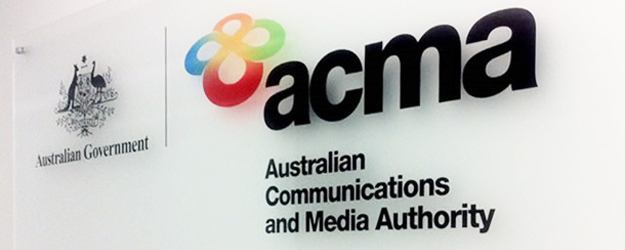
Moves to introduce a three-strikes system to combat online piracy in Australia are on hold, with the country’s music industry seemingly happy to focus on web-blocking for the time being. Although plans for three-strikes were pretty well developed in Australia, with internet service providers under pressure from government to participate in the scheme, agreements could not be reached on who would pay for the anti-piracy programme.
A number of countries have considered both three-strikes and web-blocking as anti-piracy tactics. The former involves persuading or forcing ISPs to send increasingly stern warning letters to suspected file-sharers, with the threat of legal action or other sanctions if users continue to access content from unlicensed sources. The latter involves courts ordering ISPs to block access to websites deemed to be rampant copyright infringers.
In the UK, Parliament adopted a form of three-strikes, but then that never happened and the entertainment industry found it could instead secure web-block injunctions under existing copyright law. Meanwhile in Australia, both were being actively considered by government for a time, but in the end web-blocking got underway sooner.
And now reps from both the internet and entertainment industries have told the Australian government that they want to put the three-strikes initiative – aka the Copyright Notification Scheme – on hold. They said in a letter to the Australian Communications And Media Authority: “While the text of the [CNS] code was agreed between the parties, negotiations were still under way to finalise an associated commercial agreement to address a range of issues, including cost sharing, underpinning the operation of the [scheme]”.
It went on: “It has not proved possible to reach agreement on how to apportion all of the costs for the overall operation of the CNS. This lack of agreement is not due to any shortage of good-faith effort by the parties. Efforts to resolve the impasse included the joint commissioning of a comprehensive study by an independent consultant to identify the range of real-world costs that would be incurred”.
According to ZDNet, the boss of the ISP-repping Comms Alliance had already confirmed at a recent conference that both the internet and entertainment industries were now of the opinion that web-blocking should be prioritised over three-strikes.
John Stanton said: “What we’re looking at doing is making a joint approach to the minister with rights holders to say, ‘well, given the focus is on website blocking at the moment, let’s put that [three-strikes] draft code into abeyance, and not have the ACMA seek to further examine it for possible registration, and we’ll come back in twelve months and see whether it makes sense to try and reinvigorate those commercial discussions”.
Elsewhere in Aussie copyright news, the country’s Communications Minister Mitch Fifield has denied rumours that his government is considering a proposal to reduce the copyright term on literary, musical and artistic works from the current life of the creator plus 70 years.
The term reduction is one of a number of proposals in a recent report by the government’s Productivity Commission, many of which would be controversial within the content industries, including an expansion of Australia’s fair dealing copyright exceptions and an extension of safe harbour protection for internet platforms, in contrast to the reduction of safe harbours the music industry is lobbying for in the US and Europe.
But Fifield has insisted that a cut in the copyright term is not on his government’s agenda, saying: “Recently, it has been wrongly claimed that the government is planning to reduce the life of copyright to fifteen to 25 years after creation, rather than 70 years after the death of the author as it is currently. This is not something the government has considered, proposed, or intends to do. The false claim is based on a finding in a recent draft Productivity Commission Report into Intellectual Property Arrangements”.
READ MORE ABOUT: Copyright Notification Scheme | Three-Strikes
Thursday 26 May 2016, 10:06 | By Andy Malt
One killed, three injured in shooting at TI show
Artist News Legal

One person was killed and three others injured in a shooting back stage at a TI concert in New York last night.
Police report that the shooting took place at around 10.15pm at the Irving Plaza venue near Union Square, during a support set by Maino & Uncle Murda. Videos uploaded from inside the 1000 capacity venue show fans fleeing after shots rang out.
One man was shot in the chest and killed, while another is in a critical condition after being shot in the stomach. A woman and another man, thought to be rapper Troy Ave, sustained leg wounds. As yet, no arrests have been made.
TI was reportedly inside the venue at the time of the shooting, though left unharmed. He also had a second performance scheduled last night at the nearby 1 OAK nightclub, although this was shut down by police, according to reports.
READ MORE ABOUT: Maino & Uncle Murda | TI
Thursday 26 May 2016, 10:05 | By Chris Cooke
EU report reckons €170 million lost to music piracy in 2014
Business News Digital Labels & Publishers

Those missing the days when it was all about “look at all the money we’re losing because of bloody piracy”, rather than “look at all the money we’re losing because of fucking YouTube”, here’s something that will warm your nostalgic hearts. A new report on the music sector from the European Union Intellectual Property Office concludes: “look at all the money we’re losing because of bloody piracy”. Bloody piracy. It’s the new YouTube.
The EUIPO’s Executive Director, António Campinos, says: “The question of whether piracy reduces or increases sales of recorded music has been the subject of many studies with contradictory results”. He’s right you know, lots of contradictory results. “Our study’s results are in line with the prevailing consensus”, he continued, seemingly now ignoring the past contradictory findings, “and find that piracy reduces the revenue of legitimate industry in both digital and physical formats”.
I used to try to work out what the methodology was for these ‘money lost by piracy’ studies, but they were always dubious, and these days I’m too distracted by all the free music on YouTube to bother.
But if you’re wondering, this report reckons that: “€170 million, or 5.2% of all music sales, were lost in the EU in 2014 due to music piracy. Overall, in music sales, €57 million were lost in physical formats (eg CDs) and €113 million in digital formats. This was equivalent to 2.9% of all music sales in physical formats and 8.8% of all music sales in digital formats”.
So, there you go. Fans of retro record industry gripes can download the full report here.
READ MORE ABOUT: European Union Intellectual Property Office (EUIPO)
Thursday 26 May 2016, 10:02 | By Andy Malt
Dubset confirms deal with Spotify
Business News Deals Digital

Following its recent deal with the National Music Publishers Association in the US, unofficial mix distribution firm Dubset has confirmed an agreement on the other side of the fence with Spotify.
As previously reported, Dubset has a technology that scans unofficial mixes and works out which songs and recordings are contained within. The distribution firm then aims to get licences for all the works featured, supply the mix to streaming services, and divvy up the resulting loot between all the various copyright owners and the remixer. Which sounds like an awful lot of work, let’s hope these mixes get streamed a lot.
Dubset announced a deal to provide its cleared unofficial mixes to Apple Music in March, and is now set to pump its content to Spotify too. And if you think Dubset CEO Stephen White could be more THRILLED about this latest development, then you’re a fool. “We couldn’t be more THRILLED to be working with the team at Spotify to deliver this content to music fans all over the world”, said he.
Added Spotify’s Stefan Blom: “Our number one job at Spotify is to deliver great music to fans whenever and wherever they want to listen to it. This deal with Dubset enables us to serve fans of dance music with the mixes they crave while ensuring that artists, labels and publishers get paid fairly. It’s a great day for music fans all over the world”.
What a great day indeed. And with stats unleashed at the EDM-focused International Music Summit this week claiming that dance music fans are twice as likely to subscribe to streaming services as fans of other genres, let’s fill those streaming platforms with mixed-up bleeps, I say.
READ MORE ABOUT: Dubset | Spotify
Thursday 26 May 2016, 10:00 | By Andy Malt
Belly and The Weeknd pull out of Jimmy Kimmel performance over Trump appearance
Artist News Media

Canadian rapper Belly pulled out of an appearance on ‘Live With Jimmy Kimmel’ yesterday after realising that Donald Trump would also be a guest on the show. Belly was set to perform his single ‘Might Not’ with The Weeknd on the programme.
“I feel like the way I was raised was to be able to see through all the titles in this world – from religion to race”, the rapper said in a statement to Associated Press. “I just didn’t want to feel like I was a part of a celebration for somebody who has beliefs that the majority of us don’t agree with. I’m here on a campaign of positivity and love and to contribute what I can to music. I create songs people go to sleep and wake up to, songs that they fall in love to”.
He continued: “For me, being Muslim and being somebody that appreciates my access here in America, I love the fact that I’m able to be here. To play my part in this business is a privilege and a beautiful thing. The fact that I could lose that ability through the actions of someone such as Donald Trump isn’t right to me. At all”.
Numerous musicians have come out against the assumed Republican presidential candidate, as his campaign has gained more traction in the US, of course. Though earlier this week Neil Young relaxed his views on Trump using his music at political rallies.
But, hey, in this modern world we can create our own TV. Here’s John Oliver’s recent ‘Last Week Tonight’ piece on Donald Trump followed by the video for ‘Might Not’:
READ MORE ABOUT: Belly | Donald Trump | The Weeknd




